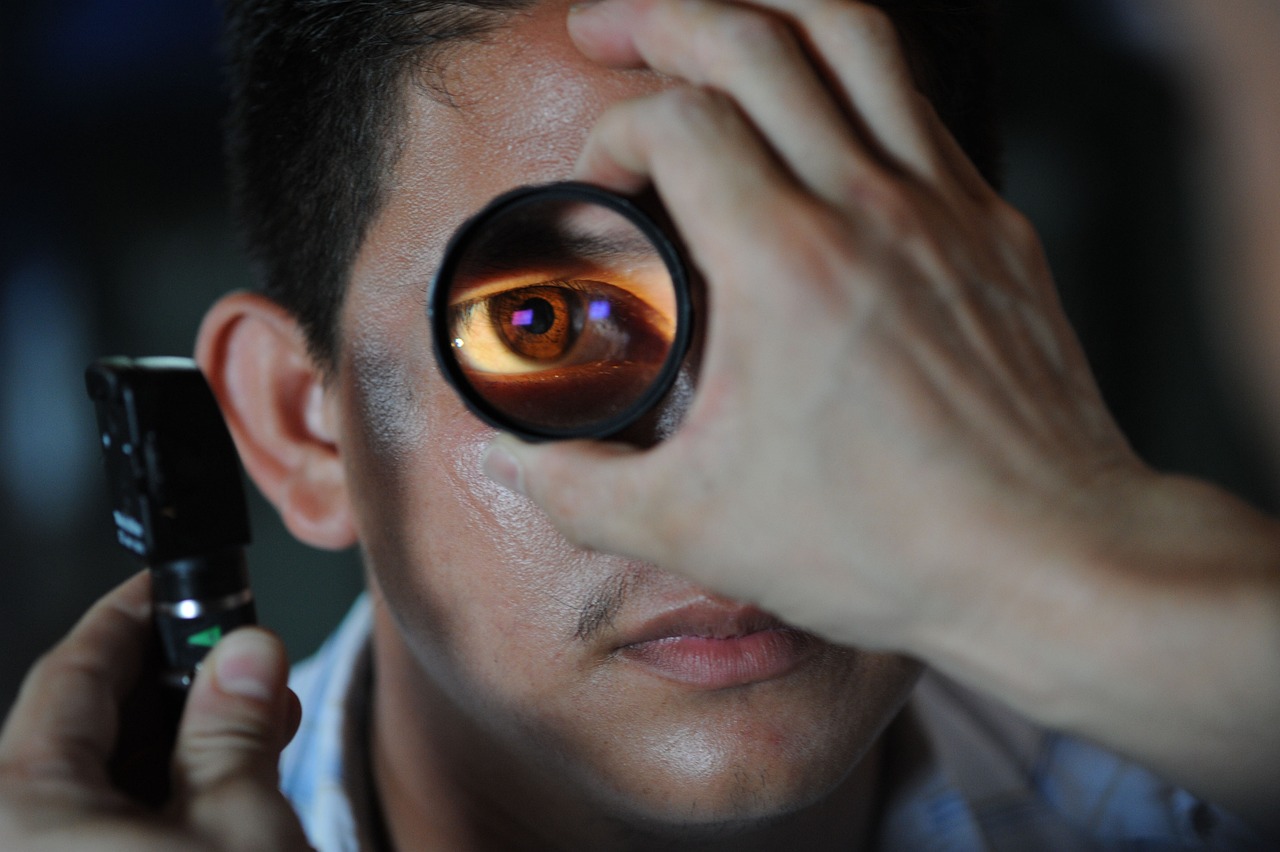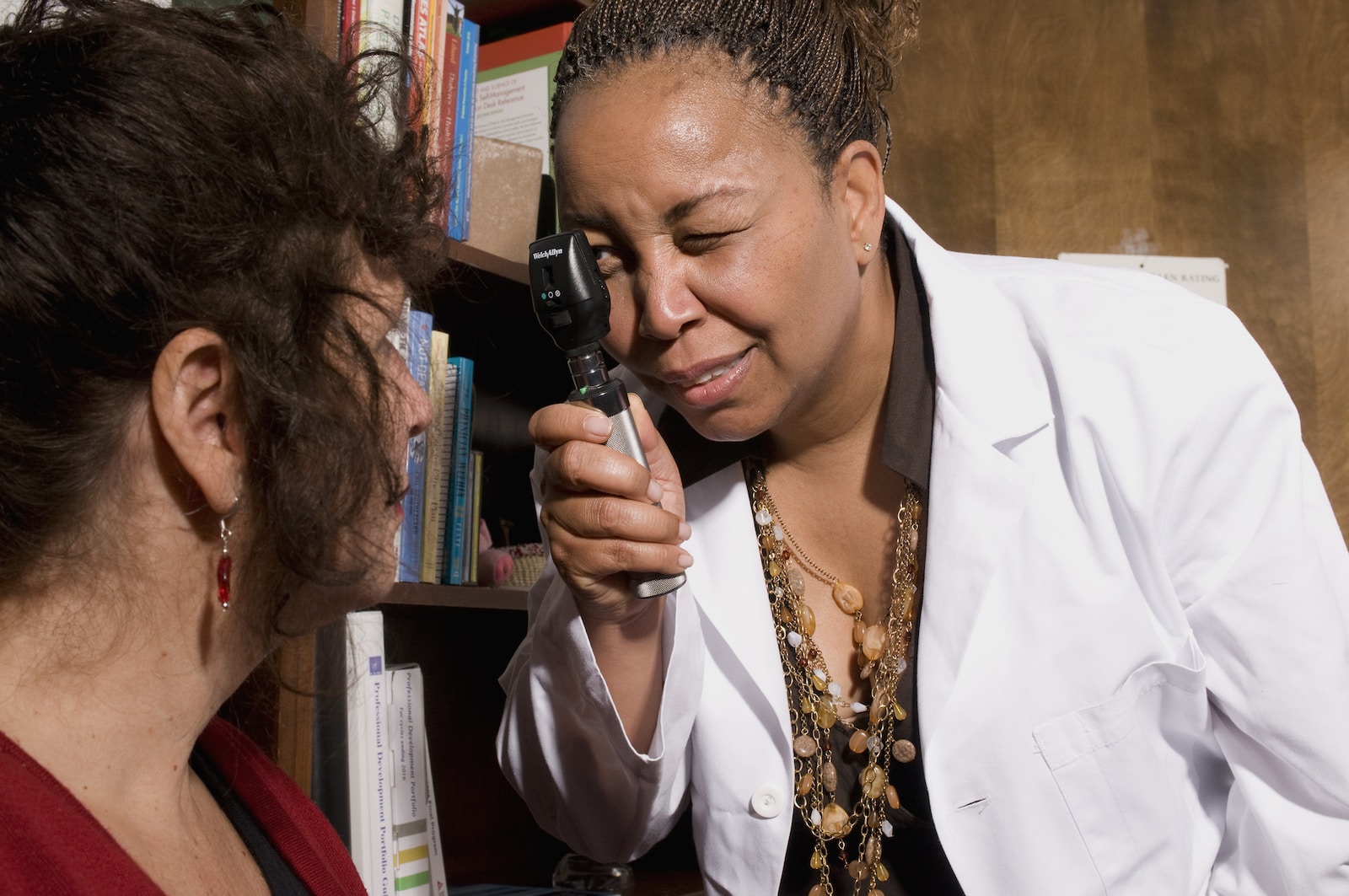FTC disclaimer: This post may contains affiliate links and we will be compensated if you click on a link and make a purchase.
Welcome to the exploration of the surprising health issues that can be detected through a routine eye exam. Our eyes, often described as the windows to our body’s overall health, can reveal far more than just vision problems.
Regular eye exams are not just crucial for maintaining eye health, but they also play a significant role in preserving our overall health.
Dr. Brian Stagg, an ophthalmologist and retina specialist, remarks, “An eye exam is one of the few exams where, without doing blood tests, invasive imaging or surgery, we can actually look inside the body” (source).
Surprisingly, a routine eye exam can reveal up to 20 different health issues, some of which may still be in their early stages and not yet detectable by standard tests (source). In the subsequent sections, we’ll delve deeper into these health issues. Stay tuned!
The Role of Eye Exams in Detecting Health Problems
Eye exams, often perceived as a routine check for vision abnormalities, play a much broader role in healthcare.
In fact, studies have shown that these comprehensive inspections of the lens, retina, and optic nerve can reveal a plethora of systemic disorders. This is possible because our eyes serve as a window into our body’s overall health.
The connection between the eyes and the rest of the body is profound. As Peter Mueller, director, Blue Shield of California Specialty Benefits, articulates, “Eyes are often the place where early signs of serious medical conditions affecting your body can be detected.”
Research indicates that people are three times more likely to schedule an eye exam than a routine physical. This makes eye exams a pivotal tool in early detection of health issues.
Conditions that can be spotted range from diabetes and high blood pressure, to more severe ailments like brain tumors and aneurysms, as highlighted by the American Academy of Ophthalmology.
Therefore, regular eye exams are not just about maintaining good vision; they’re about safeguarding your overall health.
Eye Diseases and Conditions That Can Be Detected Through an Eye Exam
Regular eye exams are crucial not just for maintaining optimal eye health but also for early detection of systemic health conditions.
The eyes can act as a window to your overall health, revealing signs of diseases even before other symptoms manifest.
Dry Eyes and Diabetic Eye Disease
Conditions like dry eyes can be an early sign of Rheumatoid Arthritis (source). Similarly, diabetic eye disease, characterized by microaneurysms, dilated capillaries, and swollen blood vessels, can indicate underlying diabetes, even if there are no other symptoms.
Other Diseases
- Thyroid Disease: Protruding eyeballs and retracting eyelids may indicate hyperthyroidism, often caused by Graves’ Disease.
- Vascular Disease: Visible bleeding in and around the eye can suggest clotting or bleeding disorders.
- Vitamin A Deficiency: Dry eyes and night blindness could be signs of Vitamin A deficiency.
These examples underscore the importance of regular eye exams as a preventive healthcare measure. Early detection can lead to timely treatment, potentially preventing severe outcomes.
Other Health Problems That Can Be Revealed Through an Eye Exam
Eye exams are not just for checking vision; they serve as a window to your overall health. Surprisingly, they can reveal underlying health issues such as brain tumors, autoimmune diseases, and Lyme disease.
For instance, increased pressure in the brain caused by a tumor can lead to swelling near the back of the eyes, which an eye doctor can spot during an exam. This swelling causes changes to the optic nerve, a key indicator of a potential brain tumor.
Autoimmune diseases like Multiple Sclerosis (MS) and Rheumatoid Arthritis (RA) can also be detected. MS often causes inflammation of the optic nerve, which can be seen during a routine eye exam. On the other hand, RA can cause red eyes with deep, severe pain, signaling a condition called scleritis.
Lastly, Lyme disease, a tick-borne infection, can cause inflammation of the optic nerve and an increase in floaters, both of which can be spotted during an eye exam. These examples illustrate the importance of regular eye exams in detecting health problems beyond vision issues.
The Importance of Regular Eye Exams
Regular eye exams play a pivotal role in maintaining not only our vision but also our overall health. These comprehensive checks can detect early signs of serious health conditions such as diabetes and high blood pressure, often before your primary care doctor does.
Eye diseases, some of which present no initial symptoms, can be identified early when treatment is most effective.
CDC reports that conditions like cataracts, diabetic retinopathy, glaucoma, and age-related macular degeneration can lead to permanent vision loss or blindness if not detected and treated in time.
The risk of not scheduling regular eye exams can be high. Many people underestimate their need for vision correction until they experience the dramatic improvement a simple pair of glasses or contacts can bring. Even more concerning, without regular exams, eye diseases may progress unnoticed until significant damage has occurred.
Early detection through comprehensive eye exams leads to more effective treatment and better health outcomes.
For instance, American Academy of Ophthalmology highlights that an eye exam can reveal surprising conditions like thyroid disease, vascular disease, and Vitamin A deficiency. Hence, these exams are not just about maintaining good vision; they’re about preserving overall health.
Eye Care and Management of Health Conditions
Eye care is not just about maintaining vision health but also plays a pivotal role in managing significant health conditions like diabetes, high blood pressure, and autoimmune diseases.
Regular eye exams can aid in monitoring these conditions, providing valuable insights into their control and management.
- Diabetes: Regular eye exams can detect early signs of diabetic retinopathy, helping manage diabetes better.
- High Blood Pressure: Chronic hypertension can affect blood vessels in your eyes. Eye exams can reveal changes in these vessels, indicating the need for a more effective hypertension management plan.
- Autoimmune Diseases: Certain eye conditions like dry eye disease can be a sign of underlying autoimmune disorders. Regular eye check-ups can help identify these early.
Effective eye care involves open communication between eye doctors and other healthcare providers. This integrated approach ensures a more comprehensive healthcare strategy, optimizing wellbeing and eye health.
Eye Emergencies and Their Connection to Health Problems
Eye emergencies, such as sudden double vision or burst blood vessels, can signal more serious health issues. An unexpected change in vision or eye appearance should never be ignored. In fact, these could be indicative of conditions like high blood pressure, aneurysm, or even a brain tumor.
If you experience an eye emergency, it’s crucial to seek emergency eye care immediately. A comprehensive eye exam can detect any underlying conditions that may have led to the emergency.
Remember, prevention is always better than cure. Regular comprehensive eye exams and maintaining overall health can significantly reduce the likelihood of eye emergencies. Proper eye care and health management are your best defenses against these critical situations.
Conclusion
As we’ve explored in this article, routine eye exams can unveil a plethora of surprising health issues.
These exams are not just about maintaining your vision, they serve as a window to your overall health, revealing conditions like high blood pressure, diabetes, brain tumors, and aneurysms, often before other symptoms emerge. This reinforces the importance of regular eye exams in safeguarding not just your eye health, but your overall well-being.
According to the American Academy of Ophthalmology, all adults should get a comprehensive eye examination at age 40, with potential risk factors necessitating earlier and more frequent check-ups.
So, don’t delay. Prioritize your eye health and schedule a comprehensive eye exam today. It could be the most illuminating appointment you make, casting light on hidden health issues and helping you stay one step ahead in the journey toward optimal health.









